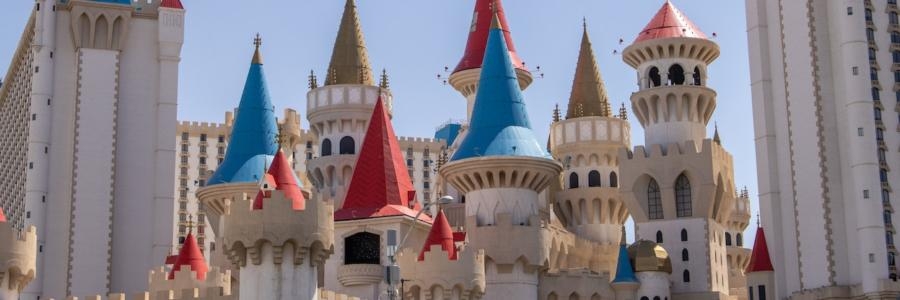The Quirky World of Themed Hotels

Where Dreams Get a MakeoverIn a world where ordinary accommodations can seem as exciting as watching paint dry, themed hotels offer an antidote. Picture this: a place where pillows double as your sidekicks in a medieval quest, or a facility that transports you to a world of exotic jungles without requiring a passport. Staying at one of these establishments can be like stepping onto the set of a movie, minus the multi-million dollar budget and the inevitable drama of actors arguing over snacks.Types of Themed HotelsOpen the door to a universe where creativity thrives, and you'll find themed hotels that make you question whether you've arrived at a place to stay or a bizarre amusement park. Here’s a taste of what you might stumble upon:- Medieval Castles: For those dreaming of jousting while wearing armor, these hotels offer a royal getaway. Forget about room service; you'll be greeted by knights instead.
- Space Age Retreats: Captain's log, stardate 2023. Journey through time and space without leaving the planet. Ideally suited for those who want to sleep like a space cadet.
- Underwater Escapes: Ever wondered what it's like to be a mermaid? These hotels give you a fish-eye view of the ocean, where the only thing you'll be swimming in is pure relaxation.
- Wild West Saloons: Grab your cowboy hat and prepare to check in. You may not find a gold rush, but the excitement of living like a cowboy may just strike the right chord.
The Not-So-Serious Side of Themed HotelsWhile some may roll their eyes at the thought of staying in a hotel styled like a pirate ship, it’s essential to understand the philosophy behind it. Who doesn’t want to fill their social media feed with pictures of them lounging on a faux plank while sipping a piña colada? It’s Instagram gold. Even your pets might get jealous of your newfound fame! And, let’s face it—if the hotel has quirky decor, it’s like you have a built-in conversation starter. “Oh, you stayed at a bland hotel? I was busy fighting off faux pirates in my room!” A Serious Look at Themed HotelsBeyond the whimsy, themed hotels often cater to specific markets. Families seeking immersive experiences can find educational and exciting environments for children. Couples can enjoy romantic getaways in whimsical settings that can spark creativity and deepen connections. Business travelers, meanwhile, may find these hotels provide an unusual reprieve from mundane corporate lodging. Themed hotels can also contribute significantly to local economies. By attracting tourists to unique experiences, they help sustain surrounding businesses, from restaurants to adventure parks, creating a vibrant ecosystem.Food Fit for a King (Or a Pirate)No themed hotel is complete without a menu that complements its ambiance. Imagine dining in a medieval castle, where the feast includes giant turkey legs, bread the size of your head, and tankards of ale. Or consider an underwater establishment where the seafood menu features dishes that practically swim to your table. Funny how that works, isn’t it? You check in for the eclectic décor but end up staying for the culinary adventure. You might leave with a few extra pounds and a newfound desire to recreate that “seafarer stew” back home—an endeavor that could easily end in culinary calamity.Will These Hotels Endure?As trends evolve, the question arises: will themed hotels remain a staple of the hospitality industry? While the answer may vary, the creativity and spirit that fuel these peculiar establishments suggest they’ll continue to thrive. After all, who wouldn’t enjoy a night in a hotel where novelty reigns supreme? Innovations in technology might soon allow guests to engage with augmented reality experiences, blurring the lines between fantasy and reality even more. Just think—your dreams could literally walk through your hotel room door!Bidding Farewell to the OrdinaryBefore packing your bags, consider stepping out of the mundane and into a hotel that fuels your imagination. Who knows? You might just find that the quirkiest stays offer the best stories. And remember, whether you’re chasing dragons or just trying to find the hot tub in a jungle room, adventure awaits. Check in, check it out, and don’t forget to take your memories home—because those are priceless, unlike the room rates!
|
|







